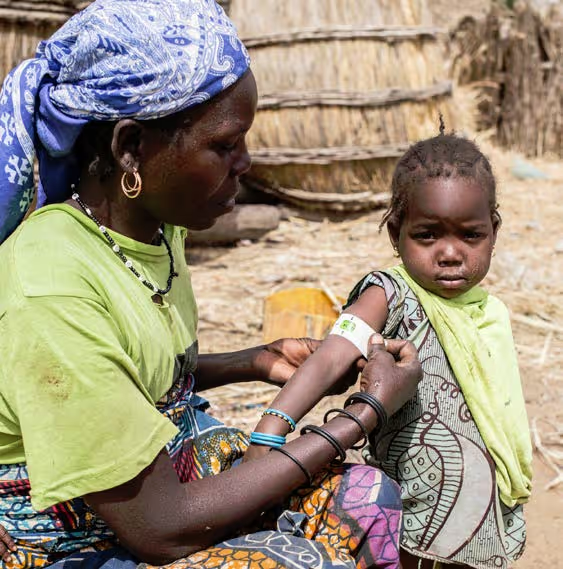Seven new research studies address some of the pressing issues in humanitarian health

We are pleased to announce seven new humanitarian health research studies, which were submitted under our 2018 R2HC Funding Call, have been selected for funding.
Demand for our grants, which take the unique approach of partnering academics with humanitarians, continues to rise. This call received 175 eligible research proposals submitted at the Expression of Interest stage, with 31 of them being invited to prepare Full proposals.
With so many strong proposals, deciding on the final few was very difficult but the successful studies were chosen because of their rigorous methodology and their potential to achieve impact. The chosen teams now plan to start research activities from July, after contracting has been completed.
Once they begin their research these new studies will join our expanding portfolio, alongside Pasteur Institute Dakar’s ‘lab-in-a-suitcase’ which was used in the Democratic Republic of Congo to support the recent Ebola outbreak and the International Rescue Committee's study into building a cross-sectoral Menstrual Hygiene Management toolkit - now a key references in the 2018 Sphere Guidelines.
Learn more about the STUDIES
Evaluation of a community-based comprehensive epilepsy prevention and treatment programme in onchocerciasis endemic villages in South Sudan
The study will evaluate a community-based programme to protect children from developing epilepsy and improve the treatment and care of persons with epilepsy in onchocerciasis (‘river blindness’) endemic regions in South Sudan
See the full study profile.
Empowerment counselling intervention for pregnant women and girls affected by intimate partner violence (IPV) in a refugee camp in Tanzania
This study focuses on the provision of high-quality, women-centred care to survivors of IPV and other forms of violence, through delivery of antenatal care (ANC) services in a humanitarian setting.
See the full study profile
Effects of cash transfers on intimate partner violence in humanitarian settings: a prospective cohort study in South Sudan
This research seeks to improve understanding of the dynamics between IPV and cash transfers in humanitarian settings. There is a focus on increasing knowledge of how receipt of cash transfers and the way they are delivered, may change gender relations, power dynamics, and IPV in receiving households.
See the full study profile.
Simplified and optimised management of acute malnutrition in children aged 6 to 59 months
Based in Niger and complementing an existing study with the same design in DRC, this study will investigate the effectiveness of an alternative simplified protocol for the treatment of severe and moderate acute malnutrition in young children.
See the full study profile.
Effectiveness, cost-effectiveness, and coverage of severe acute malnutrition treatment delivered by Community Health Workers in Mali and Senegal
This study will investigate a simplified protocol for treatment of severe acute malnutrition (SAM) delivered by Community Health Workers (CHWs). They will compare this to the current protocol (providing SAM care at facilities).
See the full study profile
Human and environmental health costs and benefits of firewood versus clean fossil fuel use by Forcibly Displaced Myanmar Nationals and host communities in Bangladesh
This study aims to investigate the human well-being and environmental impacts of the distribution of liquid propane gas (LPG) to replace firewood for cooking in Rohingya refugee camps.
See the full study profile.
Evaluating the public health impacts of attacks on health in Syria
The study which seeks to understand the intermediate and long-term impacts on health outcomes in communities, of attacks on medical facilities, and personnel in Syria.
See the full study profileFunding for this research will be made through our Research for Health in Humanitarian Crises (R2HC) programme. You can see our donors here.
Stay updated
Sign up for our newsletter to receive regular updates on resources, news, and insights like this. Don’t miss out on important information that can help you stay informed and engaged.
Explore Elrha
Learn more about our mission, the organisations we support, and the resources we provide to drive research and innovation in humanitarian response.